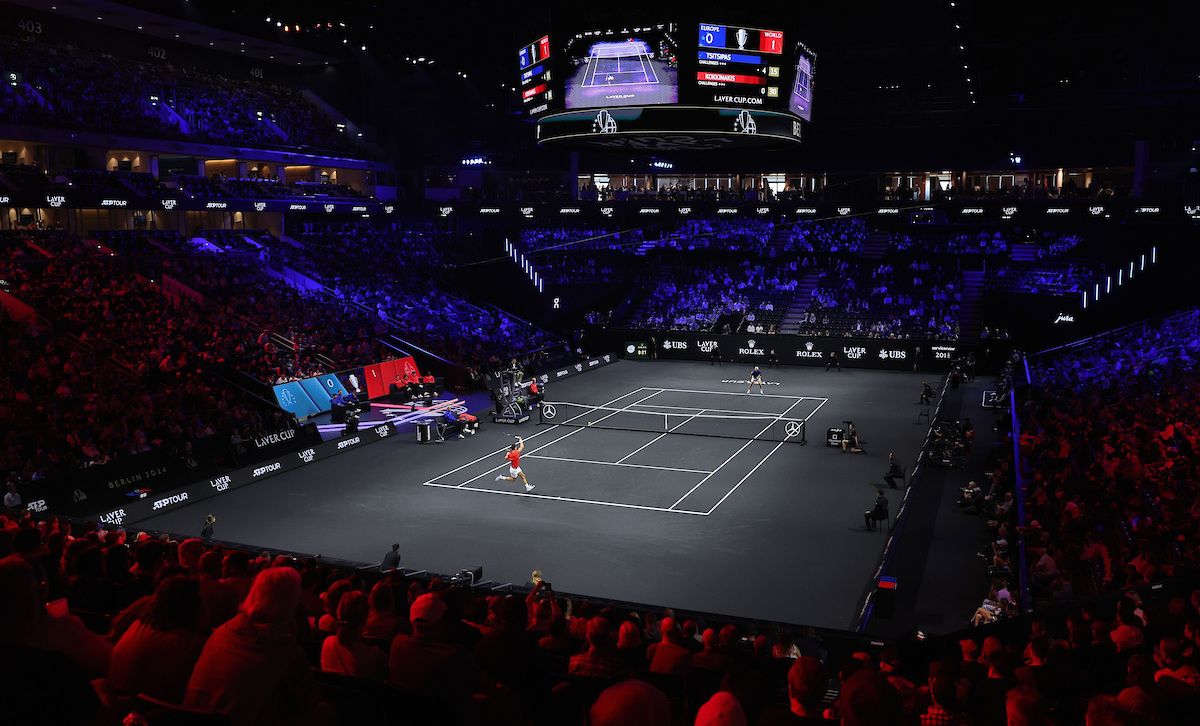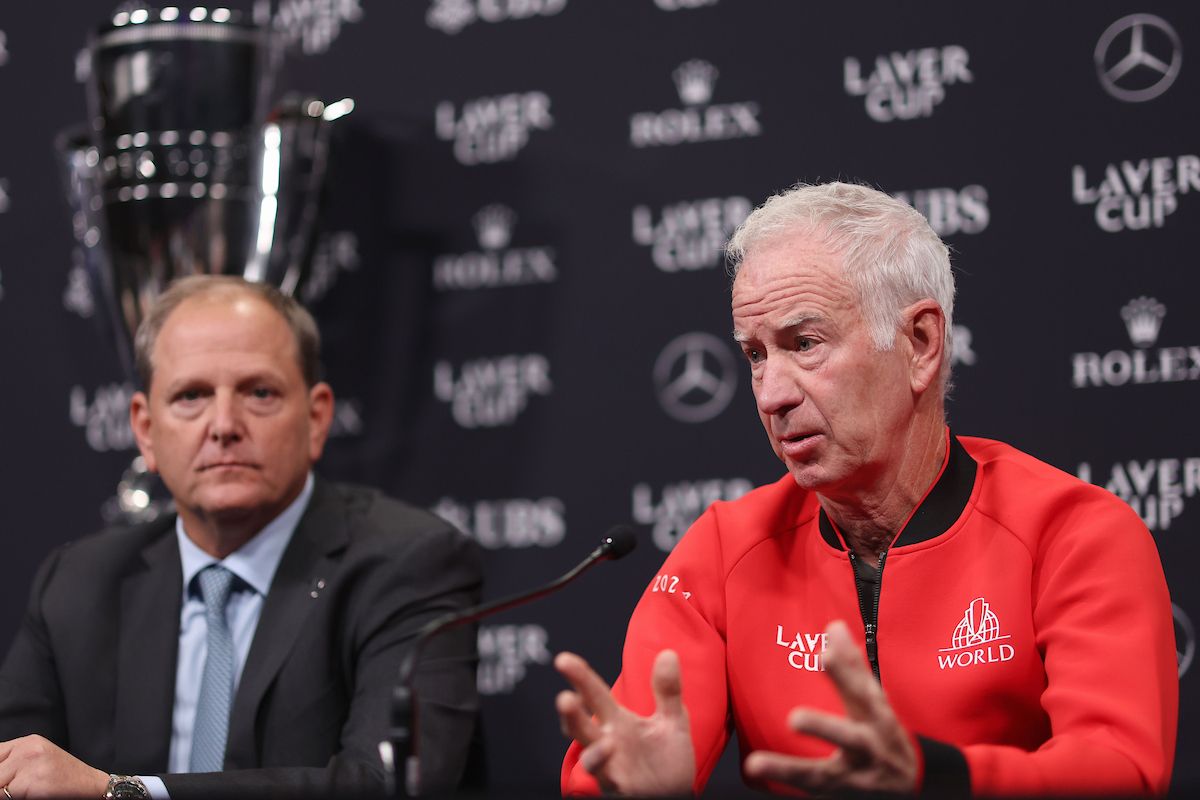
“Our goal is to give people an experience that is so great they want to do it again!” said the Laver Cup’s chief executive officer Steve Zacks as he and Laver Cup chairman Tony Godsick announced a five-year extension to the tournament’s partnership with the ATP.
“We invest very heavily,” added Zacks, just before the seventh edition of the Laver Cup got underway at Berlin’s Uber Arena on Friday. “We bring the greatest lineups we possibly can, we make the court unlike anything else – part of that is the black design for the court and court surrounds. When you look at any picture, you know it’s the Laver Cup.”
The team event was the brainchild of Roger Federer and his manager Godsick, ostensibly to honor Rod Laver who won the calendar-year Grand Slam in 1962 and 1969, but also to create a platform where some of the great names from tennis’s history can meet actively with today’s top players.
“Where do retired players go?” said Godsick. “They can get invited to the Royal Box at Wimbledon or the President’s Box at the US Open, but while that’s very nice, they don’t have access to interact with the next generation of players. At the Laver Cup you have today’s players sitting on the bench with the Borgs and the McEnroes. They have Rod Laver here as well. And there are others who interact with today’s players behind the scenes.
“This year we have Boris Becker, Michael Stich and Steffi Graf in Berlin, players who today’s top athletes may never get a chance to see ever again. Even Roger hardly spent any time with Carlos Alcaraz as their careers barely overlapped. The Laver Cup will provide a meeting place every year for these types of players, which Roger and I believe is important for tennis’s history.”

The Laver Cup was first played in 2017 when the Czech capital Prague hosted the inaugural event. It has since alternated between Europe and North America, with negotiations already in train for Team World one day to host it in Asia or South America.
“Never in my wildest dreams did I think we’d be able to create such an incredible event so quickly,” said Godsick. “Just knowing some of the deals we have renewed and where we are going, I know we’re going to continue to grow. We will be in San Francisco next year. When we announced it, the owner of the Golden State Warriors [basketball team] took Roger, Steve and me to a game, and they were talking about how the Super Bowl and the Laver Cup are coming to the area next year. The Super Bowl and the Laver Cup mentioned in the same sentence – that’s super cool!”
How do such bold plans for the Laver Cup’s future sit with growing discussions about whether the tennis calendar is too full and players having to play too many matches than is healthy?
“There could be too many other tennis events per se, but this one is working,” Godsick said. “We have sold out crowds, every player loves to play, we have the biggest captains, the best sponsors, and we’re about to announce a bunch of new sponsors. Yes, there is a lot of tennis, but that’s the beauty of such a global sport, and we need to feed the global appetite. We need to keep building different events, because if we stay the same and just have four majors and a bunch of tour events, I don’t think tennis will be able to compete in the marketplace.
“And we mustn’t forget that, just because there’s a lot of events, it doesn’t mean you need to play the entire calendar. You’re free to do what you want. Sure, there are some ranking implications, but I don’t think the calendar is too crowded.”
Godsick and Zacks were also asked about the potential for the Laver Cup to expand, either into women’s tennis or to embrace the world’s top juniors. Godsick, who is married to the Australian Open and Roland-Garros runner-up Mary-Joe Fernandez and managed several top female tennis stars, said discussions about involving the women would be ramped up once the current Laver Cup reaches its full potential. “Our goal is to be like the Ryder Cup,” he said, “which has a 90-year start on us – then we’ll look at different opportunities.”